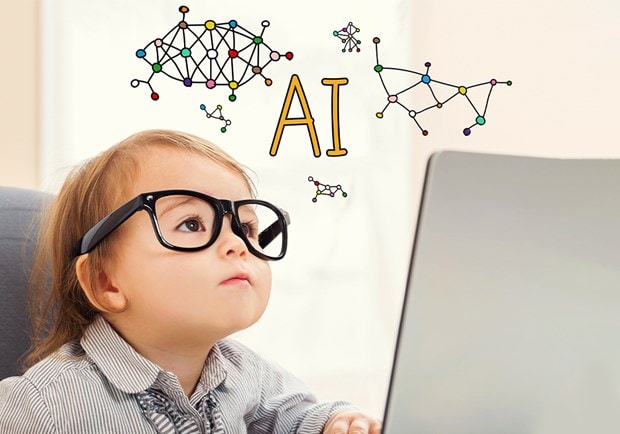Warning about the risks of artificial intelligence to children
The United Nations Children's Fund (UNICEF) and the World Economic Forum warn of risks to children related to AI, including privacy, safety issues, and psychological and behavioral impacts.
 |
| Illustration photo. (Source: Robogenius) |
Artificial intelligence (AI) is becoming a "fever" in the technology world, especially after the company OpenAI launched the tools ChatGPT and GPT-4.
This cutting-edge technology shows the potential to change the lives of many workers, but is also said to be a “double-edged sword,” especially for children.
The United Nations Children's Fund (UNICEF) and the World Economic Forum have released a report warning of the risks to children associated with AI, including privacy, safety, psychological and behavioral impacts. These risks may come from social media.
AI-based algorithms learn and store what children or anyone else searches for and interacts with, even if that content could be harmful to them or those around them. Although social media sites have taken steps to prevent this risk, it has not been completely eliminated.
Children may also be more careless about sharing personal information online, making them vulnerable to data breaches. The report also suggests that AI could exacerbate inequality and bias.
For example, schools that use AI and machine learning technology to sort student applications may inadvertently but systematically exclude certain groups of applicants.
Seth Bergeson, a research fellow at the World Economic Forum, cites a similar example. In the UK, a new AI algorithm incorrectly assessed students’ GCE exams, dashing the hopes of many students hoping to get into top universities.
Experts also mentioned the issue of autonomy and decision-making, saying that AI is so closely linked to life that it is difficult to not depend on this technology.
To prevent and reduce risks, experts say education is the key. Children need to understand how these technologies work so they can understand the benefits, potential risks and how to use these tools effectively.
Professor Aimee Roundtree at Texas State University emphasizes the need to teach children the basics of AI in simple and easy-to-understand language. Experiential education through software that helps users explore AI algorithms and technology in a visual way is also a useful measure.
Other experts say it’s important not just to understand but also to know how to interact with AI. That includes cultivating skills like critical thinking and creativity that can complement AI, as well as addressing issues like relying too heavily on AI to make decisions.
Above all, experts stress the need to teach children about responsible AI and using AI safely and ethically.
Mr. Bergeson noted that children and adolescents need to understand that AI has limitations, many serious flaws and can produce biased and prejudiced results. Young people need to be trained to think critically and decide how and to what extent AI models are used./.

